![]()
![]()
![]()
Use LEFT and RIGHT arrow keys to navigate between flashcards;
Use UP and DOWN arrow keys to flip the card;
H to show hint;
A reads text to speech;
34 Cards in this Set
- Front
- Back
|
Early humanists included --------- (1304–1374) and ------------ (1313–1375)
|
Petrarch and Boccaccio
|
|
|
-----------Emphasized rhetoric and moral philosophy in education
|
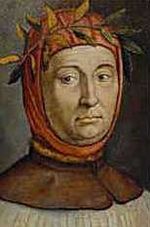
Petrarch
|
|
|
Writers such as --------------------------- also called for human mastery of nature through philosophy and also magic
|
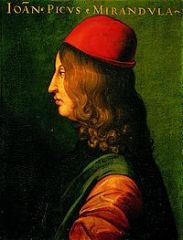
Giovanni Pico della Mirandola
|
|
|
Humanists generally insisted that women should be obedient, not educated However, -------------- (1486–1535) disagreed
He argued, in his work On the Nobility and Excellence of Women, for full equality of the sexes |
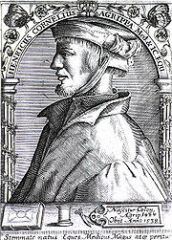
Heinrich Cornelius Agrippa
|
|
|
humanist -------------- (1364–c. 1430) attacked ancient prejudice in The City of Ladies,
|
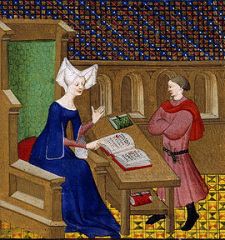
Christine de Pizan
|
|
|
New advice books for princes became popular The Book of the Courtier by ----------------- (1478–1529)
|
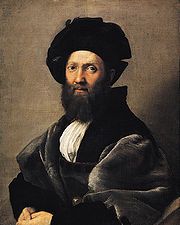
Baldesar Castiglione
|
|
|
-------------- (1469–1527) wrote the era’s most important advice book, The Prince
|
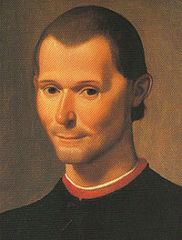
Niccolò Machiavelli
|
|
|
Printing press (c. ----): shift from block printing to movable type accelerated the spread of Renaissance ideas
|
1445
|
|
|
---------(c. 1466–1536) made Renaissance humanism international
he used the pen to attack scholasticism and clerical abuses and to promote faith His satiric Praise of Folly and Colloquies won him international acclaim he said true religion is revealed in the Bible and accessible to all |
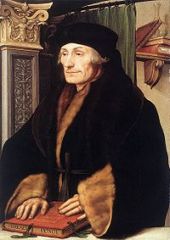
Desiderius Erasmus
|
|
|
----------- advanced skepticism, Christian faith, but also tolerance He argued that people should not be punished for their beliefs In his Essays, he devoted himself to Socratic self-examination
|
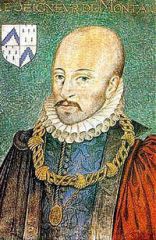
Montaigne
|
|
|
---------- asserted the goodness of the individual and one’s right to enjoy the world Gargantua and Pantagruel celebrates earthly life, and the motto “Do what thou wilt”
• French Humanism |
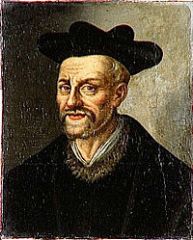
François Rabelais
|
|
|
Man behind authoritarian Spanish humanism was Cardinal ------------- (1436–1517)
he founded university, published classical and linguistic studies Like other humanists, he desired a return to pure Scriptural sources |
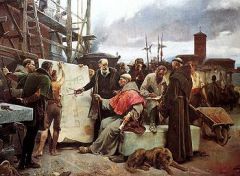
Francisco J. de Cisneros
|
|
|
------------ (1547–1616) wrote Don Quixote The novel satirized ideals of knighthood and chivalry and was apparently still influential in seventeenth-century Spain
|
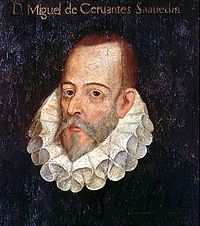
Miguel de Cervantes
|
|
|
----------was a major figure Lawyer, civil servant, member of Parliament His book Utopia was first major utopian treatise since Plato’s Republic In Utopia, he argued that an acquisitive society is both unjust and unprosperous
Was lord chancellor under Henry VIII |
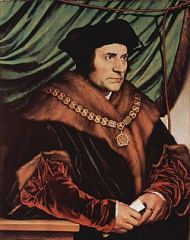
Sir Thomas More
|
|
|
When was the Renaissance?
|
1350-1600
|
|
|
• Individuals should realize their potential through study and creative work
○ ------- (1304-1374) ○ ------ (1313-1375) ○ ------- (1463-1494) Oration on the Dignity of Man (1486) |
Petrarch
Boccaccio Pico della Mirandola- |
|
|
• Mastery of languages knowledge of original sources
○ ------- - (1374-1444) On Learning |
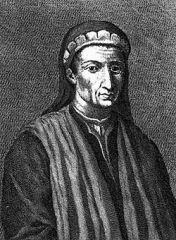
Bruni
|
|
|
• Concerned with Eloquence of Expression
|
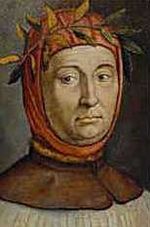
Petrarch and many others
|
|
|
• concerned with Promotion of Civic Virtue
-------- (1446-1513) |
Della Fonte
|
|
|
Painting, Sculpture and Architecture (plates)
• Geometric Perspective allows realistic depiction of people, events ○ ------- (1276-1337) Frescos ○ -------(1386-1466) Sculptures ○ --------- (1475-1565) Paintings (Creation of Adam, 1510) |
Giotto's
Donatello's Michelangelo's |
|
|
• Balance and Precision in design in design and construction
○ ------------- (1377-1446) Churches ○ --------- Drawings, Paintings, and Inventions |
Brunelleschi's
Leonardo's |
|
|
• Leaders should be concerned with pragmatic issues of power and security
• Real world of politics and diplomacy leaves no room for moral or ethical concerns ○ --------- (1469-1527) The Prince (----) |
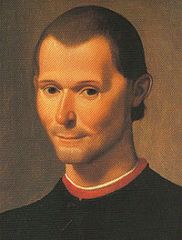
Machiavelli
1513 |
|
|
• Rulers should govern with elite advisers
---------- (1478-1529) Book of the Courtier (1528) |
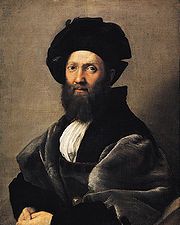
Castiglione
|
|
|
• "Christian Humanism" emphasizes biblical basis of faith, salvation
○ ------- (c.1466-1536) studies bible, satirizes clergy ○ ------- (1478-1535) criticizes a1uisitiveness of clergy and upper classes ○ -------- (c.1494-1553) rejects dogma of catholic church |
Erasmus
More Rabelais |
|
|
• Printing press (c.----) propagates books, scholarship, ideas
|
1445
|
|
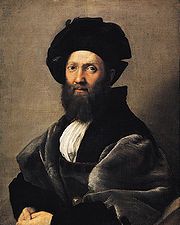
Baldassare Castiglione
|

Boccaccio
|
|
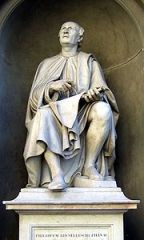
Brunelleschi
|

Cervantes
|
|
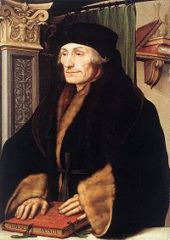
Desiderius Erasmus
|

Donatello
|
|
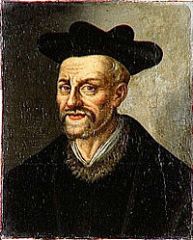
François Rabelais
|

Giotto
|
|
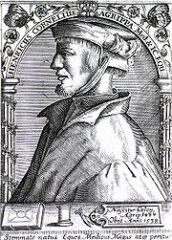
Heinrich Cornelius Agrippa
|

Michel de Montaigne
|
|
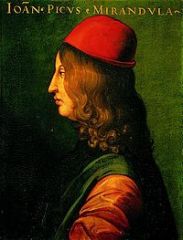
Mirandola
|

Niccolò Machiavelli
|
|
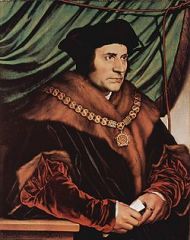
Sir Thomas More
|

Michel de Montaigne
|
|
|
He proved in his book....Declamation Concerning the False Decretals of Constantine
.....that the Pope wasn't the ruler over all of the western empire |
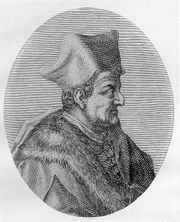
Lorenzo Valla
|
|
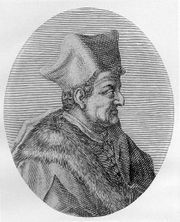
Lorenzo Valla
|

Lorenzo Valla
|

